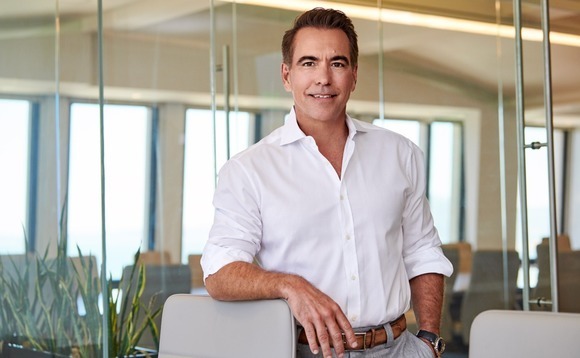
Q&A: Thoma Bravo's Orlando Bravo

Orlando Bravo, founder and managing partner of Thoma Bravo, which claims to be the largest PE investor in software globally, on SaaS in a post-COVID-19 world, the rise of blockchain, and opportunities in Asia
Q: How has your strategy evolved as the sector has evolved?
A: We have evolved in three ways. First, we continue to engage in what we called radical value creation in our companies, but the tactics have changed because the industry has moved to cloud computing and SaaS [software-as-a-service]. Second, we've added many different segments. We started in applications only, and then we added infrastructure software and cybersecurity. Just with our current companies, we are twice the size of the largest independent cyber vendor in the world with almost $6 billion in revenue. Third, when we started, the software industry was relatively mature and growing faster than global GDP, but it was bounded by technology and business model. It has become a high-growth industry, and the buyouts we've done in the last five years involved market-leading companies.
Q: When did the industry reach that tipping point?
A: 2008 – that's when it became irreversible. The global financial crisis made companies cost-centric. If they could rent a piece of software for $300,000 a year, and that would take cost out of the P&L, they would do it. If that same product required spending $1 million in capex, at a time when capex budgets were being cut, they wouldn't do it. Software companies resisted change because it was painful – they had the same cost base, but they were swapping big revenue checks for rented over time. Even now, we are only 50% of the way there. Half of software is SaaS, the rest is on-premises.
Q: What has been the COVID-19 effect?
A: There's been a big step-function increase in the usability and purchasing of SaaS. The global SaaS market capitalization is $2.4 trillion, up from $75 billion in 2008, that's 30x growth. The number of companies has multiplied. A lot of these solutions were already available, it's just the open-mindedness and creativity of leaders were lagging. The pandemic has forced these leaders were forced to think differently because they had no other choice. They had to think differently about the physical world and the digital world. The second quarter of 2020 was terrible; the third was decent, the fourth was great, and we've never looked back. The pandemic has also made it more important that we buy market leaders, whether they are verticals or horizontals. In all cases, the move to winner-takes-all has accelerated.
Q: How long does it take to become a market leader?
A: About 10 years. You can become a disrupter in 24 months, but not the market leader. Younger companies might be a better fit for our growth fund, but for the buyout fund, it takes longer to establish market leadership and show stability.
Q: To what extent have the needs of companies changed?
A: They are the same. We can summarize what we do in one line: implement an analytical approach to decision making. Given these companies are high-gross-margin and have 100% recurring revenue in most cases, they don't track revenue and direct cost in each functional business area, product area, and regional area as rigorously as they should. We implement that system, so they can make better decisions in terms of investment, sales, and product management. The world hasn't changed much in software. When we started in 2000, the average publicly traded software company, post-dotcom bubble bursting, had a negative EBITDA margin of 5%. Today, it's 2%. There has been no improvement in the way these companies are fundamentally run.
Q: How is your approach to value creation differentiated?
A: We seek to make big changes in the companies we buy, but we do that with existing management teams. We come at it from the viewpoint that through our culture we can inspire people to dream about the possibilities and think differently. Sometimes it doesn't work. But that's in very few cases, and it's always after trying. People are not perfect, they may change their minds, their hearts may not be in it. That happens. But it has served us well that, when in doubt, we have stayed the course rather than making changes too quickly.
Q: Is it harder to develop that conviction in a management team when communicating virtually?
A: Most of the time we don't have to make that trade-off because we have known a target company for 15 years. It's likely we have approached it many times before, have come close to buying it, have competed with it through other portfolio companies, and perhaps partnered with it. In the few times where it's only been Zoom, my experience is that if you like them on Zoom, you like them more when you meet them in person.
Q: What is the process, in terms of internal capabilities, when entering new segments?
A: We don't come at from a top-down view and say, "We are going to do cyber, that's the future." We go one deal at a time to make sure it works. Our first cyber deal was Entrust in 2009, a 7x return. When it became clear that one would be successful, we quickly bought Tripwire, a 5x, and then SonicWall, which was almost 4x in 18 months. That set us up. It happens organically. By doing good deals, you develop a space and become good at it.
Q: What does the investment in cryptocurrency exchange FTX say about your approach to blockchain?
A: Something revolutionary that we would not have been looking at two years ago is defi [decentralized finance]. We are not even scratching the surface of what defi is going to do to payment systems and traditional banking. Moving these crypto tokens or assets – we can't call them cryptocurrencies – or using them to store value is going to be enormous. FTX is one of those investments. We feel we are backing the most innovative exchange, certainly in derivatives and other categories, and an entrepreneur who is a visionary. Most of what we're doing is through the growth fund. Once the segment stabilizes, in terms of regulatory frameworks and business models, our private equity business will get involved.
Q: How soon will that happen?
A: In the next 24 months, much faster than people might think. We are seeing some major assets producing hundreds of millions of dollars in EBITDA in this category. It's moving quickly.
Q: How should traditional banks respond?
A: Ultimately, the customer is the community, it's the most powerful customer you can have. The customers are the users of and contributors to that community. Traditional institutions will have to get their heads around this somehow.
Q: Your first investment in Silicon Valley was SonicWall in 2010. To what extent are software companies you target dependent on established technology ecosystems?
A: Not at all dependent. When distributed computing really came about 25 years ago, it was supposed to lead to the democratization of locations. You build a program cheaply, distribute it, and through interconnected systems you could do it in different areas. The opposite happened. Labor and capital became more concentrated in certain economic centers, with Silicon Valley at the top. But when we started 22 years ago, all our deals were outside of Silicon Valley. The first deal was in Philadelphia; the second was in Addison, Texas; the third was in Fairfax, Virginia; the fourth was in Seattle; the fifth was in Cleveland, Ohio. Silicon Valley was more expensive, more competitive, and we were early in buyouts. The community wasn't ready for private equity; it was all venture capital. SonicWall came one-third of the way into our total timeline in software.
Q: Does it matter where companies are located?
A: No. The reason it has been so concentrated in the US is there's so much opportunity. Of all the great choices we've had, we picked ones in the US. They were close to us as well, but now we are entering a world that is hybrid, being in the US is less relevant.
Q: How many times have you invested in businesses not headquartered in North America?
A: We've made 325 software acquisitions, but two-thirds are add-ons, and many of those are outside the US. They're in Germany, Israel, all over. From a platform company standpoint, it's more recently that we've gone outside of North America. It's interesting. There was InfoVista in France, but then our acquisitions of Sophos and Calypso, both based in the UK, closed during COVID. There's also been a bunch of investments outside of North America through our [early stage-focused] Discover fund.
Q: Where does Asia come into it?
A: We haven't done a platform in Asia, but we've done bolt-on acquisitions. Our companies sell globally, and geographical proximity to customers doesn't matter when you ship using the press of a button or you use your channel partners. North America is a feet-on-the-street market, but in Europe and Asia, we use channel partner distribution networks. Have we found a buyout in Asia of $3-10 billion? No, we have not. Have we been all over the market looking for one? No. Maybe we should be. The availability of control is an issue. Asia has been more of a venture and growth equity market.
Q: Are you seeing more sector specialists targeting software deals?
A: When you look at the size of the opportunity, there should be a lot more specialists. But at the same time, more generalists are doing these deals because software is becoming the business. If you are a generalist working in any industry, software is disrupting that industry or running the operations of companies so intimately, that's what you do.
Q: What are the barriers to entry?
A: You need to recreate a company's P&L, which means coming in operationally to build the business case as a business owner yourself. This is not like other sectors where you would buy for 12x EBITDA, finance it, hope you can do a few things, and get 18x. Sometimes you are buying zero EBITDA and you must get to $300 million just by margin improvement while enhancing growth. We started learning that when we were investing $15 million equity checks, 22 years ago. That experience gives us the conviction and wherewithal to write a $5-6 billion equity check or larger. As a new entrant, you're going to your investment committee, seeking capital on a huge scale for something that isn't there on paper. That's a big barrier.
Q: What is your view of extended hold or evergreen structures to give you longer to develop or monetize companies?
A: It's a good thing. It's an area of innovation in private equity that I think needs to move even faster for the type of assets coming into the industry. Longer duration is especially appropriate in software.
Q: Is the current pace of conventional private equity fundraising a concern?
A: It's not a concern provided the returns are good. I think it's healthy that, when you have fast deployment, the whole industry must come to market and LPs can choose the best performers. Those who don't have the numbers get weeded out much more so than when deployment is slow deployment and LPs must invest a certain amount each year. Our philosophy is the time to buy a great software company that fits our strategy is whenever we can. It's not market timing, it's not this or that. We have a way to deal with the risks of vintage year diversification. The important thing is we try never to do the next big deal until we feel the prior one is on a solid footing.
Latest News
Asian GPs slow implementation of ESG policies - survey
Asia-based private equity firms are assigning more dedicated resources to environment, social, and governance (ESG) programmes, but policy changes have slowed in the past 12 months, in part due to concerns raised internally and by LPs, according to a...
Singapore fintech start-up LXA gets $10m seed round
New Enterprise Associates (NEA) has led a USD 10m seed round for Singapore’s LXA, a financial technology start-up launched by a former Asia senior executive at The Blackstone Group.
India's InCred announces $60m round, claims unicorn status
Indian non-bank lender InCred Financial Services said it has received INR 5bn (USD 60m) at a valuation of at least USD 1bn from unnamed investors including “a global private equity fund.”
Insight leads $50m round for Australia's Roller
Insight Partners has led a USD 50m round for Australia’s Roller, a venue management software provider specializing in family fun parks.







